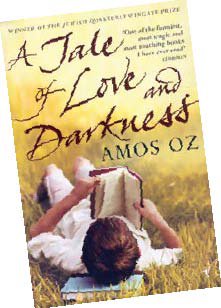
The Lost by Daniel Mendelsohn
Paperback. Harper Perennial, 2006. 516pp. www.harperperennial.com
A Tale of Love and Darkness by Amos Oz
Paperback. Vintage, 2005. 517pp. www.randomhouse.co.uk/vintage
Both books are available in English at Tsomet Sfarim, Steimatzky and www.amazon.com
Reviewed by Pnina Moed Kass
To write fiction is to create and to write a memoir is to recreate. The writer of a memoir is recreating a story whose beginning, middle and end he knows. The events he chooses to recount in his memoir can be spellbinding but sometimes the omissions can intrigue us almost as much as the story itself. This is not a diary, which is a record of events, but an emotional retelling of a succession of moments in a person's life and the lives of people he has known. Remembering can be just as much about choice as choosing the words of a novel. Maybe that is the literary bridge connecting novels and the most affecting of memoirs.
"The Lost" by Daniel Mendelsohn and "A Tale of Love and Darkness" by Amos Oz are two memoirs of astounding power, stylistically quite different but both intent upon retrieving events that took place at pivotal moments of contemporary Jewish history. Though Mendelsohn and Oz are the driving forces of their stories, the richness of the landscape they describe, human and geographical, tempts one to say that both books have a cast of hundreds. The two authors, one in a superb translation from Hebrew and the other in English, make no attempt either to hide the fragility of memory or the devastating effect it has had on them.
Both memoirs start at a very traditional place, the two authors as young boys. But in Daniel Mendelsohn's case the first twenty-six pages are not a chronicle of growing up but a description of the mysterious emptiness caused by vanished family members whose faces and names haunt the living. With those pages as an introduction he begins, "It was on the day of my barmitzvah that the search began."
The originality of "The Lost" lies in the brilliant merging of Mendelsohn's personal history with all its attendant emotions, certain critical events of the nineteenth and twentieth centuries and the inclusion of philosophical commentaries that deepen and enrich the story. The writer is able to juxtapose his curiosity about his family with a visit to Auschwitz and place them alongside Rashi's analysis of Cain's crime – all of these presented to the reader with skill and clarity. The breadth of his intellectual curiosity, the relentless persistence that drives his search for the six missing people and the beauty of his language as he descriptively blends all these elements is truly impressive.
Amos Oz's "A Tale…" begins with the author's birth and his natural entrance into the world of books. Both his parents were academics, and the writers and philosophers of Europe, at least their books, were co-tenants in the small Jerusalem apartment where he grew up. His parents' memories became his memories and only slowly did he sort out what was inherited and what memories were solely his by experience. With sensitivity and precision Oz deals with the struggle and pain of the birth of Israel as felt by the people around him. He artfully describes the planting of a garden that later was testimony only to failure, the many ways he absorbed and acquired language and his most unforgettable teacher, the wizard with words, whom he later discovered was the poet Zelda. He is almost surgical in the description of his mother's tragic end sparing us none of the feelings he had but avoiding any melodramatic embellishments because as a writer his task is "to rein in and to polish pain."
The relationship between his parents is described with sympathy, sadness and his own changing feelings as he grows up. The only child of two intellectuals both of whom "placed the full weight of their disappointments on my little shoulders. . . . My parents put on my shoulders everything they had not managed to achieve themselves." With a touch of irony he alludes to the ease with which he received various posts in the academic world while his father, a learned and deserving scholar, suffered endless bitter disappointments as university after university turned down his request for a position. Throughout the years of his growing up there remained the tantalizing mystery of what lay beyond the borders of his Jerusalem neighborhood. At first it was the image of the khaki-clad Hebrew pioneer, blonde, muscular and afraid of nothing. Then it was the fear that the war would come to Jerusalem, to his small neighborhood and with it the slaughter of Jews.
"Books were the slender lifeline that attached our submarine to the outside world. We were surrounded on all sides by mountains, caves and deserts, the British, the Arabs and the underground fighters, salvoes of machine-gun fire in the night, explosions, ambushes, arrests, house-to-house searches, stifled dread of what still awaited us in the days to come."
Both memoirists are recorders of the loss of innocence – theirs and others. Both describe not only what actually happened but, like the turning of the kaleidoscope glass, each new pattern in their lives demands a reaction and an explanation. These books, two superb reading experiences, are mirrors held up to lives we have not known or witnessed but yet are very much our lives.
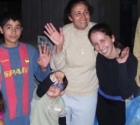 ESRA ASHKELON DONATED GOODS
ESRA ASHKELON DONATED GOODS 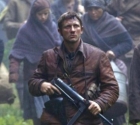 DEFIANCE TEL AVIV STYLE
DEFIANCE TEL AVIV STYLE  THE SPIRIT OF ESRA-JULES AND PERLA FOX- EXCEPTIONAL BENEFACTORS
THE SPIRIT OF ESRA-JULES AND PERLA FOX- EXCEPTIONAL BENEFACTORS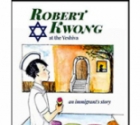 Robert Kwong at the Yeshiva
Robert Kwong at the Yeshiva 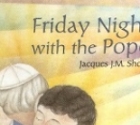 Friday Night with the Pope - A Book Review
Friday Night with the Pope - A Book Review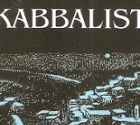 The Kabbalist - A Book Review
The Kabbalist - A Book Review  Pnina Moed Kass
Pnina Moed Kass